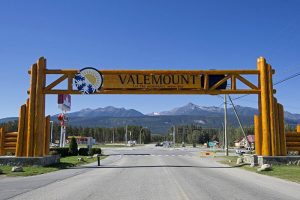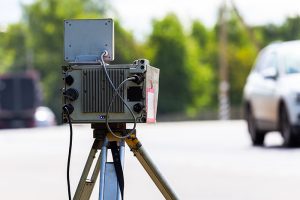Life in and after the military has rewards and challenges, say Newfoundland medics
Olivia Bradbury,
Local Journalism Initiative Reporter
Luc and Sandy Levesque have lived in Upper Island Cove, Newfoundland, for 23 years. Sandy is originally from Stephenville, and Luc is from Ottawa, Ontario. Both served as medics in the Canadian Forces, which is how they met.
When she was younger, Sandy was a member of the Sea Cadets, which she deeply enjoyed. She aspired to become a police officer but, after taking the aptitude test, discovered she “wasn’t suitable to be a cop.” So, she joined the military as a medic.
Luc’s path to the military was different. He got into legal trouble in his younger years and was told he could either do jail time or join the military. “I looked around and most of my friends were going nowhere fast and the writing was on the wall, so I thought, ‘You know what? I’d rather join the military than go to jail,’” said Luc.
The decision changed his life, Luc said, and he does not regret it in the slightest.
Sandy explained that, as a medic in the military, you have one of two roles: you either work in a hospital or you work in a field position where you “go everywhere that the military goes as support.”
Both Sandy and Luc worked as medics during the Gulf War, but they did not meet each other initially as they served different roles in different locations: Luc was on the ground as a medic in Saudi Arabia, while Sandy was treating patients from the war at a hospital in Germany. It was not until later when they both happened to be posted to Ottawa that they met.
Following her term in Germany, Sandy went to work at the National Medical Defense Centre in Ottawa, the NDMC. Luc describes it as a “high-end, deluxe hospital” which treated not just members of the military, but also police officers, members of parliament, even the prime minister.
“It was quite prestigious,” said Sandy.
However, the hospital eventually closed and today is used as an office building. There is no longer a hospital specifically for treating military personnel. They are instead treated at civilian hospitals. Sandy remained at the NDMC for the rest of her military career. She served 15 years altogether, ultimately leaving due to back problems.
Luc later ended up posted to Ottawa, which is where he met Sandy. There he worked as a medic, then at a centre where he helped injured veterans receive their pensions from Veterans Affairs Canada. He served for 22 years altogether.
Sandy explained that a difficulty faced by military medics back then was that they were not given medical licenses that they could use outside a military setting.
“At that time, we had no civilian accreditation that was equal to what we were trained for,” she said.
The medics were trained in nursing and learned the same array of skills as a physician’s assistant, but were not given licenses. Sandy was part of a pilot program for medics to get registered nursing licenses. This was prompted by an ice storm that occurred in 1995. During the storm, the government wanted military medics to help out in the hospitals, but no one would insure the medics because they did not have civilian papers. These days, medics train to be a physician’s assistant. “You’ve got the paperwork, and you can do something (later),” said Sandy.
When asked what the most fulfilling part of their service was, both husband and wife indicate it was caring for their patients. Sandy said that, for her, it was caring for the veterans at the hospital, noting that they cared for veterans from all the wars Canada has fought in. Luc said the most fulfilling part for him was performing emergency treatment on patients and seeing them survive.
As for the most difficult parts of her experience, Sandy said it was hard working on the cancer floor of the hospital and doing third-line evacuation in Germany during the Gulf War. She also thinks she had a more difficult experience in the military than Luc because she is a woman. At one point she went to Germany to work as part of a trial run of introducing women into field and combat roles.
“We weren’t wanted by the men, and they made it very well-known,” said Sandy.
Not only did the women have to be as good as the men, they actually had to be better at their jobs, she said, in order to receive respect. “Nothing was good enough if you’re a female,” said Sandy.
Luc recalled seeing the way women coming up through the ranks were treated. “A lot of the men, the majority of the men, just treated the women like trash. And there was no way a man was going to allow a woman to get ahead,” said Luc.
Sandy said that problem is not as prevalent in the military today. “I think females have a better voice than there was years ago,” she said. Her own experience improved when she began working in the hospital, where she said she worked hard and was subsequently recognized.
Luc said for him the most difficult part of the experience was politics. He spoke about the government slashing military funding, reducing safety equipment and recruiting efforts, and giving military personnel very minimal raises.
“We had to do more with less,” said Luc. “We just weren’t taken care of.”
Sandy agreed, adding that cuts to the military are still happening today.
When asked about the struggles veterans face, Sandy cited the back problems she incurred during her service that forced her to retire. More than just a physical ailment, it is a financial one. Despite the injuries having occurred as a result of her service, Veterans Affairs offers little to no coverage for medical costs, she said. Moreover, the medication she had to take for her back caused other health problems, including dental issues. During her time working at the NDMC she was hit in the face by a veteran suffering from dementia, which she thinks contributed to the dental problems. In the past two years she has had to pay almost $15,000 out of pocket for dental fees. Only some of that cost has been covered by her military insurance.
Sandy said at Veterans Affairs, they used to have case workers assigned to work with them, but that is no longer a practice.
“Now it seems like there’s all new staff,” she said. “They don’t know who you are when they answer the phone. They do their best to try to help you, but they have no idea about anything.”
Sandy said she recently called to ask whether a certain drug was covered by Veterans Affairs, and they required her to get a significant amount of additional information for them, only for her to be told in the end they did not cover the medication.
On the topic of post-service struggles, Luc brought up the high suicide rate among veterans. He noted in the United States the average rate of veteran suicide is about 22 veterans every day. He also noted that many veterans struggle with addiction issues after their service, but there are little resources for that issue, either.
“No one seems to help them, just send them around walking in circles until they’ve just had enough,” said Luc. “There’s no care for them.”
After Luc left the military due to his own back problems, he had to fight for recognition from Veterans Affairs for a decade. Eventually he started an organization, the Canadian Association of Gulf War Veterans, to help other people in his position. The organization helped set up the National Military Cemetery in Beechwood in Ottawa. He is a recipient of the Queen’s Golden Jubilee Medal in recognition for his service and work helping veterans, and he was also awarded the Chief of Defense Staff Commendation which recognizes efforts that go beyond the typical demands of duty.
When she and Luc worked at the hospital in Ottawa taking care of elderly veterans, Sandy often asked him, “I wonder who’s going to be around to take care of us when we get that age?”
She said now there is nothing for them. The hospital is gone, insurance coverage is minimal to non-existent, and mental health resources are few and far between. Sandy said the government does not take adequate care of its military members, active or retired.
When they moved to Newfoundland, the couple noticed how much the residents value and respect veterans. This especially became apparent to them on July 1, which is Canada Day for the country, but also Memorial Day for Newfoundland and Labrador.
“In Ottawa it’s a big party. And I was surprised at how solemn it is on Canada Day in Newfoundland,” said Luc. “But that’s because Newfoundlanders, they know their history about it, and they support veterans.”
Olivia Bradbury,
Local Journalism Initiative Reporter
The Shoreline News


